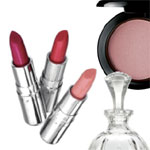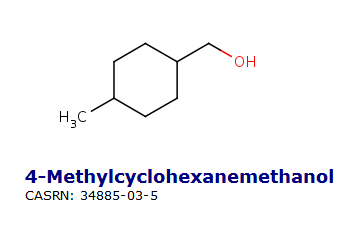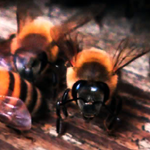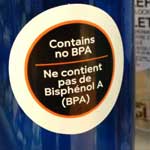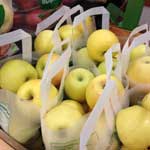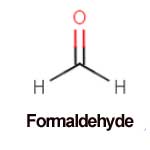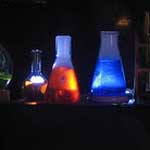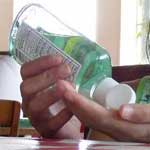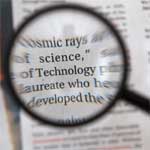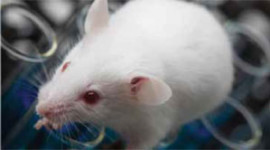"Do Consumers Think About Parabens in Cosmetics?" by Perry Romanowski. If you spend a lot of time on the Internet surfing RSS feeds and social media, you could develop the notion that parabens are dangerous chemicals in cosmetics and that you should avoid products that contain them. Of course, actual science tells a different story and a review of all the scientific evidence by the independent scientists of the EU’s Scientific Committee on Consumer Safety (SCCS) indicates that parabens in … [Read more...]
Communication Failures and the West Virginia Chemical Spill
"Uncertainty and the West Virginia Chemical Spill," By Angela Logomasini on February 14, 2014. In the aftermath of the January 9 chemical spill in West Virginia, environmental activists claim: “More than two weeks after the spill, the answer to most questions about the spill and the chemicals in it is either that ‘we don’t know’ or that the information is incomplete.” Green groups make such claims to capitalize on the fact that everything in life has some uncertainty. But that does not mean … [Read more...]
Food Babe is Wrong Again
"Useful Idiot Alert: The Food Babe," By Julie Gunlock. Have you heard about the Food Babe? She’s got quite a following. On Twitter, she has 46K followers. On Facebook, she has a whopping 319K followers. Her website is well designed (The Food Babe has a degree in computer science so that makes sense) and she’s clearly had her media training. She’s been on Good Morning America, the Today Show and on her fellow alarmist’s program, The Dr. “apple juice will kill you” Oz show, plus a whole bunch of … [Read more...]
TSCA Reform Not the Answer to the Chemical Spill
"TSCA Reform Won’t Reduce Chemical Spill Risks," By by Angela Logomasini. The January 9 chemical spill in West Virginia, which temporarily contaminated the Charleston drinking water supply, has rekindled a debate related to federal chemical regulation. Clearly, this case — and another spill that occurred this week in West Virginia — demonstrates the failure to properly implement the many emergency planning and prevention laws and programs already on the books. And this is a problem that state … [Read more...]
We Have Enough Information to Manage Chemical Spill Risk
"West Virginia Chemical Spill: We Have Enough Information to Manage the Risk," By Angela Logomasini. In a prior post, I addressed the background related to the recent chemical spill that contaminated drinking water in West Virginia, and I highlighted why more regulation would not do much good. But we continue to hear that we need more regulation because we don’t have enough information about this chemical and thousands of others. Such claims divert our attention from the real issue: failure to … [Read more...]
Subway Restaurant Bows to Alarmist Nanny State
"The Latest Example of a Company Bowing to Consumer Pressure: Subway," By American Council on Science and Health. Here is yet another example of one of the nation’s largest brands responding to pressure from American consumers and activist groups. Subway has chosen to remove the chemical azodiacarbonamide from its bread. According to a statement made by the company, “We are already in the process of removing Azodiacarbonamide as part of our bread improvement efforts despite the fact that it is … [Read more...]
Chemical Spill Does Not Signal Need for More Regulation
"More Regulation Is Not the Answer to West Virginia Chemical Spill," by Angela Logomasini. The recent chemical spill in West Virginia has green groups clamoring for more regulation, including expansion of Environmental Protection Agency power under the Toxic Substances Control Act. Early on, however, Democratic Senator Barbara Boxer of California rightly told the press, “We can fix this now” using existing laws rather than passing new ones. Boxer’s strong opposition to the current TSCA reform … [Read more...]
Honeybees and Pesticide Ban Reversal?
"Bee Deaths Reversal: As Evidence Points Away From Neonics As Driver, Pressure Builds To Rethink Ban," by Jon Entine. If the Environmental Protection Agency moves to restrict neonicotinoid pesticides because of fears that they are causing bee deaths, it will happen in spite of the mounting evidence rather than because of it. Last December, the European Commission banned the use of neonicotinoids, often called neonics, for two years. The moratorium, support for which was channeled by the … [Read more...]
Beepocalypse or Not?
"To Bee or Not to Bee? What is Behind the Bee Colony Collapse? Or is There One?" By American Council on Science and Health. The discussion about the reasons behind the so-called “beepocalypse” has been entirely focused on its cause. Some suspects have been cell towers, pesticides, and infectious diseases—Tobacco Ringspot Virus being the latest theory. But if you follow some of the references in Jon Entine’s recent Forbes op-ed, entitled “Bee Deaths Reversal: As Evidence Points Away From Neonics … [Read more...]
Phthalate Plasticizers Now Safe
"Several Types of Phthalate Plasticizers, Used for Decades but Once Shunned, Now Safe Again!" by American Council on Science and Health. Posted on February 5, 2014 by adminPhthalates — pronounced THAL-ates — are a family of chemicals, many of which are have been added to PVC plastic to make the firm product softer and flexible. Over the course of the past decade-plus, no chemical group in common use has taken such vitriolic attacks on its safety as have phthalates.In recent years, a distinction … [Read more...]
BPA Science
"EU BPA Evaluation must avoid 'Hysteria' and Focus on Scientific Evidence," By Rüdiger Baunemann. Regulatory authorities worldwide have found no health concern of BPA-based applications, therefore there is no scientifically justified reason for further restricting its use, argues Rüdiger Baunemann. Plastics have become indispensable to modern life, and a number of important materials are based on Bisphenol A (BPA). Without plastics we would not be able to enjoy high-tech devices like … [Read more...]
Expert Says: Pesticide Residue “Not Really a Concern”
"Pesticides Get Gad Rap, Expert Says," By Carol Ryan Dumas. Pesticides are an essential tool in production agriculture yet often get a bad rap, particularly when it comes to pesticide residues in food, an expert says. In reality, pesticide use is heavily regulated and allowable residue levels are so low that the issue of safety is insignificant. ...The dangers of pesticides are exaggerated by the media and special-interest groups, an expert says, but the truth is they are an essential tool in … [Read more...]
Chemical Spill & Formaldehyde Nonsense
"The West Virginia Formaldehyde Claim Is Nonsense," by Derek Lowe. This morning I heard reports of formaldehyde being found in Charleston, West Virginia water samples as a result of the recent chemical spill there. My first thought, as a chemist, was "You know, that doesn't make any sense". A closer look confirmed that view, and led me to even more dubious things about this news story. Read on - there's some chemistry for a few paragraphs, and then near the end we get to the eyebrow-raising … [Read more...]
Huffington Post’s Chemical Fearmongering
"At 'HuffPo' Fearmongering Is an Olympic Sport," By Jeff Stier. What is to blame for spiraling medical spending? Exposure to chemicals in food containers, of course. In a dazzling display of confusion between association and causation, Huffington Post environmental and public health columnist Lynne Peeples writes that: "Health care spending in the U.S. has surged more than eightfold since the 1960s. Skyrocketing in that same time: Rates of chronic disease, use of synthetic chemicals, and … [Read more...]
Rats! “Relevant” Chemical Exposures Are Not Relevant
"Close Enough For NIEHS Work," By Steve Hentges. The subject of endocrine disruption is not particularly new, with extensive scientific and regulatory attention to endocrine disrupting chemicals (EDCs) over the last 20 years or so. ... Quite a few natural and synthetic chemicals exhibit endocrine activity but, in spite of 20 years of research, the field of endocrine disruption continues to be ill-defined and highly controversial. Two of the current controversies revolve around the related … [Read more...]
Cosmetics and Cancer Claims
“Safe” Chemicals Used In Makeup and Skincare Doubles Cancer Risk by Katherine Corkill. Well I had hoped to not be broaching this subject yet again. However there was an article that I took exception to this month that was written by a gal in the UK for the Epoch Times. My particular concern is through her attempted proclamations of fact there was not a single link to support her objective. I have read countless arguments, misconstrued facts, skewed data only to see yet again another article … [Read more...]
BPA Exposure: Low and Harmless
"BPA Exposure Is 'Too Low to Cause Harm,' According To Regulators; But You'd Never Know That From The Media Coverage," by Henry Miller. Suppose a new authoritative analysis revised the estimate of your lifetime chances of being struck by a meteorite — from, say, one in a hundred billion to one in ten billion. Should that tenfold increase in the probability make you any more worried? No– because both values are somewhere between negligible and infinitesimal. A similar and more pertinent question … [Read more...]
Conventional Produce Healthy for Kids
"Organic Shmorganic: Conventional Fruits and Vegetables are Perfectly Healthy for Kids," By Melinda Wenner Moyer. When my son was a baby, organic was a synonym for edible. If the apples I found at the grocery store weren’t certified, I wasn’t buying them. I knew that conventional produce could harbor traces of pesticides, and I’d read that pesticides could affect brain development. Sure, the details of this association were hazy—I didn’t know how many pesticides my son might ingest from … [Read more...]
EU’s Nonsensical Precautionary Regulations
"The Junk Science Threat to Free Trade," By Julie Girling. French red lines on agriculture and America's desire to have financial regulation be treated outside the current trade negotiations dominate the headlines about the proposed trans-Atlantic free-trade zone. But the biggest threat to the Trans-Atlantic Trade and Investment Partnership may well be the EU's expanding embrace of "precautionary" regulation—often in contradiction to established norms of science and risk management. ... … [Read more...]
Europe’s Precautionary Junk Science
"Junk Science Rules in the EU, says Parliamentarian," by American Council on Science and Health. A Wall Street Journal Op-ed by a member of the EU Parliament decries the direction being taken by science there: it’s back to the dark ages as fear trumps evidence. In a recent opinion piece in the Wall Street Journal, MEP Julie Girling, a Brit on the Parliament’s Environment (and Agriculture) committees, issues a warning about the direction EU chemical food regulation is headed: smack-dab into a … [Read more...]
Foolish Attack on Antibacterial Products
"The Green Campaign against Triclosan is Dangerous and Regressive," By Angela Logomasini. Environmental activists have sounded the alarm suggesting that consumers face serious health risks from the antibacterial chemical triclosan, which manufacturers have safely used in soap and other personal care products for decades. Unfortunately, green hype has led federal regulators to force companies to try to do the impossible—prove that their products pose no risk or remove them from the market. But … [Read more...]
Dangers Associated with Potential Ban on Anti-Bacterial Soap and Gels
"Immune Compromised Patients Will Suffer from Anti-Bacterial Soap Ban," By Angela Logomasini. Many people with compromised immune systems use antibacterial soaps and gels, particularly when they’re on the go, to reduce health risks. But environmentalists have launched a campaign to ban triclosan, the active ingredient in these soaps. That action would do nothing for public health while thwarting consumer access to helpful products. These anti-chemical groups have so demonized triclosan by … [Read more...]
Weak Science Garners Headlines
"Scare Journalism And Miracle Cures: American Media Prefer Weak Observational Studies," By Hank Campbell. A new analysis has affirmed what many in the science audience already knew; mainstream media prefer weak observational studies. It's why you're reading this article here instead of the New York Times. And that is not just in regards to social psychology correlations made using surveys of college students or sociology mysticism, it happens in medical coverage too. The examination found that … [Read more...]
Science Under Attack
"The Latest Epidemic To Infect The Scientific Community? Bad Science," by Patrick Michaels. Last month, 2013 Nobel-prize recipient Randy Schekman made quite a few waves in the science world, when he announced, the day before receiving his award, that he would no longer send papers to Science, Nature, and Cell. These are probably the three most prestigious journals in the world. His accusation is that they are “damaging science” by selectively publishing trendy “headline science” (my words) at … [Read more...]
Nail Polish Alarmism at the NYT
"Don't Worry, ladies. You're not Harming Yourself by Applying your Favorite Nail Varnish," by Julie Gunlock. But that's precicely what an environmental group is telling millions of women in order to push their regulatory agenda. And last week, the New York Times kindly spread the alarmism. In last week's "Just Ask" column, (which perhaps should be renamed "Just Ask...but We Can't Promise a Well Thought Out or Researched Answer), Deborah Blum asks "Is Nail Polish Harmful?" ... Read More. … [Read more...]
